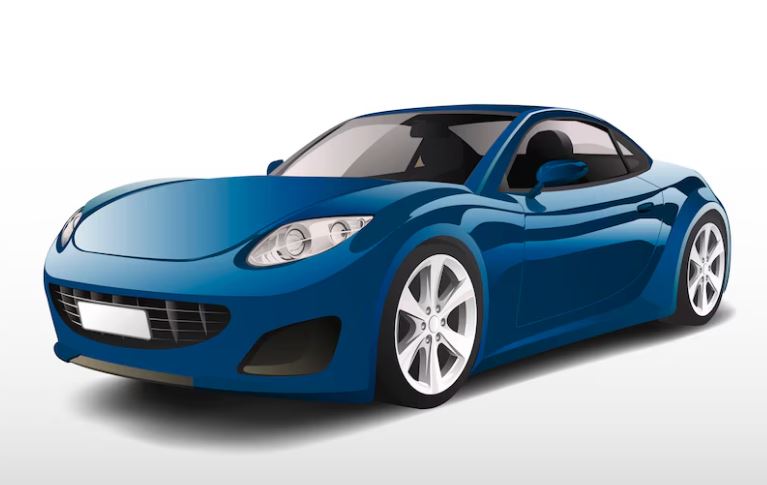Divergent 3D isn’t merely another tech-savvy company playing around. It is a force that is actively tearing down the antiquated traditional production infrastructure. Fundamentally, the business is combining robotic assembly, additive manufacturing, and digital design into an incredibly efficient system that has the potential to drastically change the production of automobiles, airplanes, and high-performance parts. The Divergent team, based in Los Angeles, has reduced the need for large factories and equipment to a software-defined, adaptable process that can produce anything from spacecraft to supercars.
Established in 2014 by Kevin Czinger and run by his son Lukas Czinger, the business has developed into a test of what manufacturing can achieve when it is motivated by engineering curiosity rather than inertia. With its patented Divergent Adaptive Production System (DAPS), a highly effective end-to-end platform that dematerializes complexity, decentralizes production, and reimagines how things are built, Divergent has pushed boundaries over the last ten years. It is currently producing hypercars that rival Bugatti and Koenigsegg in terms of performance, and it is also attracting interest from aerospace defense contractors who want to streamline part production in ways that were previously thought to be impossible. This is not just a theoretical framework.
Divergent has produced a cycle that is not only incredibly clear in execution but also especially helpful to businesses weary of lengthy, expensive tooling timelines by utilizing artificial intelligence to improve structural designs and combining it with industrial-grade 3D printing. After each part, known internally as a “node,” is printed using an alloy tailored to the application, robotic arms that don’t require fixtures or jigs specific to the design put the product together with remarkable efficiency.
Divergent 3D – Company Profile
| Category | Description |
|---|---|
| Company Name | Divergent Technologies, Inc. (Divergent 3D) |
| Founded | 2014 |
| Headquarters | Los Angeles, California |
| Co-Founder & CEO | Lukas Czinger |
| Founder & Executive Chairman | Kevin Czinger |
| Core Platform | DAPS™ – Divergent Adaptive Production System |
| Patents Filed | 700+ |
| Workforce | 51–200 employees |
| Industries Served | Automotive, Aerospace, Defense, Robotics |
| Signature Vehicle | Czinger 21C – AI-designed, 3D-printed hypercar |
| Website | divergent3d.com |
Elon Musk reportedly showed special interest in Divergent’s decentralization strategy during a recent tech summit, particularly in light of Tesla’s goals to lessen reliance on conventional supply chains. Although no official partnerships have been revealed, industry rumors indicate that both startups and established OEMs are becoming increasingly interested in Divergent’s factory-light business model.
Divergent’s DAPS is a logical progression for a generation accustomed to quick software updates and iterations. The platform is extremely versatile because it can update part geometry with just a new software input without stopping production. It illustrates the transition from analog rigidity to digital adaptability, with notable similarities to the transformation of computing brought about by cloud infrastructure.
Perhaps Divergent’s most striking invention, the Czinger 21C, isn’t just quick; it’s built for molecular performance. Because of AI-optimized structural layouts and reduced material usage, its chassis weighs significantly less than conventional alternatives. After test-driving the 21C, Jay Leno said it was more like flying a fighter jet than a car, which is a testament to the amount of innovation ingrained in the car’s design.

Environmental watchdogs and international regulators have taken notice of Divergent’s strategy. Divergent’s plan to get rid of capital-intensive equipment and cut waste is incredibly relevant at a time when industries are being urged to drastically lower their carbon footprints. By avoiding the emissions-intensive tooling and stamping stages that characterize conventional vehicle manufacturing, the method provides a more economical and environmentally friendly path.
Strategic investors have shown their confidence in the company’s technology and market readiness by providing more than $160 million in funding over the last few years. Divergent is actively delivering components and entire systems for clients across various industries, in contrast to many high-tech endeavors that mainly rely on promise without product. Primes in the aerospace industry, for example, appreciate DAPS’ accuracy and adaptability in applications where tolerances cannot be compromised.
Divergent is changing the industrial playbook by taking an end-to-end strategy that incorporates design, printing, and assembly. The ramifications are significant for mid-sized suppliers or small startups without billion-dollar budgets. All they need to compete now is access to Divergent’s ecosystem, not huge assembly lines. For emerging economies hoping to overcome industrial constraints and break into high-value markets, this democratization of manufacturing has a particularly significant impact.
The Czinger family has established themselves as cultural representatives of a new era of engineering. Kevin Czinger has given the company’s vision a degree of discipline that makes it commercially feasible by utilizing his experience in both law and finance. Equally motivated and obviously tech-forward, Lukas Czinger offers a perspective that appeals to the upcoming generation of designers and engineers. In a field that is frequently dominated by impersonal boardrooms, they together represent a father-son leadership dynamic that feels surprisingly human.
Divergent is already growing its presence through government interest and strategic alliances. There have been discussions about licensing DAPS to other manufacturers, which suggests that the company may move from being a builder to a platform provider, similar to what Microsoft accomplished when it made Windows a standard for personal computers.
Divergent’s approach is even more valuable due to its flexibility in the face of global supply chain volatility. Decentralizing production and doing away with factory-specific tooling allows businesses to quickly adjust to demand spikes, political trade changes, and regional disruptions. Agility is now a need rather than a luxury.
Divergent’s path closely resembles developments in AI-generated design, distributed ledger logistics, and even on-demand satellite manufacturing for individuals tracking more general technological changes. Divergent is at the center of this current, real-time convergence of these forces. Divergent is rethinking manufacturing from the ground up, much like Spotify upended music ownership or Airbnb reinvented hospitality.



